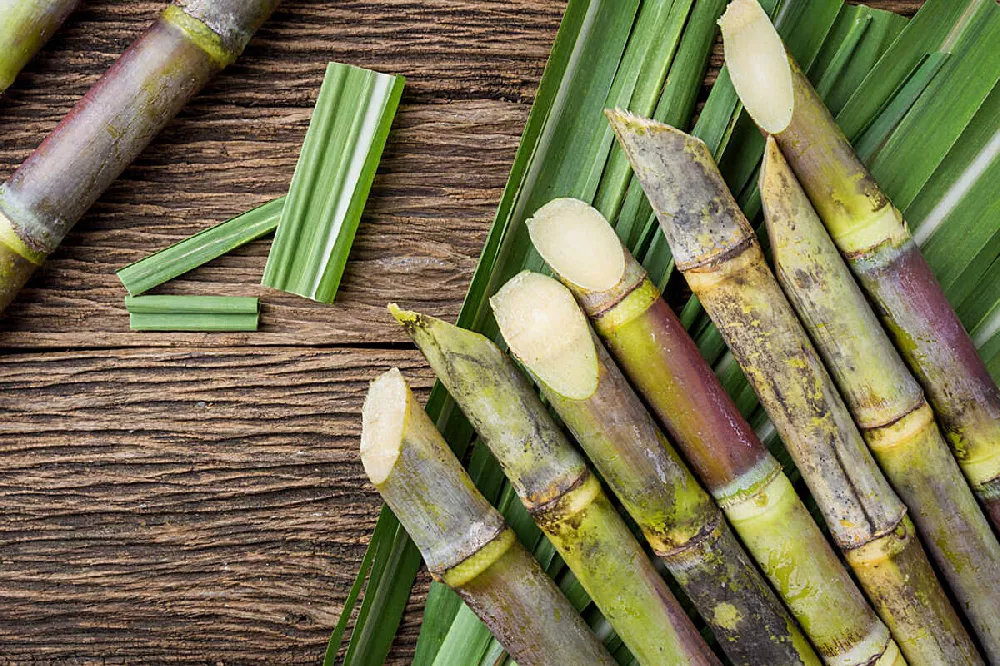Cane Sugar Processing: From Area to Table-- A Step-by-Step Overview
Cane Sugar Processing: From Area to Table-- A Step-by-Step Overview
Blog Article
A Detailed Overview of the Wellness and Economic Implications of Walking Stick Sugar Processing on Local Neighborhoods
Walking cane sugar processing plays an essential role fit the financial landscape of local communities, offering employment possibility and boosting ancillary sectors. Nevertheless, the wellness ramifications connected with high sugar intake can not be overlooked, as they add to rising prices of excessive weight and diabetes mellitus. This nuanced dynamic invites an important assessment of exactly how neighborhoods can enhance financial gains while attending to journalism health and wellness obstacles they encounter. The exploration of sustainable practices and educational initiatives may simply hold the secret to resolving these clashing rate of interests. What strategies might areas apply to attain this equilibrium?
Financial Benefits of Cane Sugar Processing
Walking stick sugar handling uses considerable economic benefits that prolong beyond the instant farming sector. The farming and processing of sugarcane produce many task opportunities, from farming to production and distribution. This work generation not only supports neighborhood economic climates yet likewise promotes area advancement by giving steady income resources for families.
In addition, the sugar market stimulates ancillary services, consisting of transport, equipment supply, and product packaging solutions (Cane Sugar Processing). As these industries grow, they add to a more durable economic structure, enhancing general area strength. The export possibility of processed walking stick sugar further enhances financial benefits, placing areas as affordable gamers in international markets
Financial investment in contemporary processing centers can cause raised performance and effectiveness, thereby minimizing waste and maximizing source usage. This shift not just profits the regional economy but additionally sustains sustainability initiatives by decreasing environmental influences.
Additionally, the income produced from walking cane sugar handling can be reinvested in neighborhood facilities, education, and health care, advertising alternative community development. Generally, the financial advantages of walking cane sugar processing are complex, providing a structure for withstanding prosperity in agricultural regions.
Health And Wellness Risks Connected With Sugar Usage
Too much sugar usage poses substantial health threats that require major interest. High consumption of sugarcoated, particularly from refined beverages and foods, has been connected to numerous wellness complications. Among the most pressing worries is excessive weight, as sugary diet plans add to a raised calorie consumption without offering vital nutrients. This excess can lead to metabolic disorders, including kind 2 diabetic issues, which has become progressively prevalent in both adults and kids - Cane Sugar Processing.
Furthermore, high sugar intake is related to heart disease. Raised blood sugar level levels can lead to insulin resistance, a precursor to various heart-related issues. Additionally, sugar can have destructive impacts on dental health, causing tooth cavities and gum disease, as microorganisms in the mouth flourish on sugar, creating acids that erode tooth enamel.
Furthermore, emerging research study recommends a prospective link in between high sugar usage and mental health conditions, such as depression and stress and anxiety. As neighborhoods face these health risks, it comes to be essential to advertise understanding and motivate much healthier dietary options. Addressing sugar intake is crucial not only for individual wellness however likewise for the overall health of local communities, highlighting the requirement for comprehensive public health approaches.
Ecological Influences of Sugar Production
Frequently ignored in conversations about sugar's ramifications is the substantial ecological effect of sugar production. The cultivation of sugarcane typically necessitates comprehensive land usage, bring about deforestation, loss of biodiversity, and disruption of regional environments. The conversion of woodlands and marshes right into sugar plantations can result in environment destruction, threatening many varieties and altering environmental balance.
Moreover, sugar production is resource-intensive, consuming substantial quantities of water for watering. This can lead to exhaustion of neighborhood water sources, detrimentally influencing both agricultural techniques and neighborhood access to clean water. Additionally, making use of chemical fertilizers and chemicals in sugarcane farming can contribute to soil destruction and water pollution, as overflow from these chemicals enters close-by rivers and lakes, influencing marine life and human health and wellness.
The environmental footprint reaches the handling stage, where energy intake and waste generation more exacerbate environmental worries. Air pollution from shedding sugarcane fields, along with greenhouse gas emissions, add to environment change. As such, the ecological ramifications of sugar production warrant serious consideration, advising stakeholders to adopt even more lasting practices to alleviate these adverse impacts on regional ecosystems and communities.
Job Creation and Neighborhood Growth
The ecological difficulties posed by sugar manufacturing are typically counterbalanced by its potential for financial benefits, specifically in task creation and community growth. The walking stick sugar industry functions as a significant resource of work in several backwoods, offering work across numerous ability levels, from farming labor to handling and circulation over here roles. This work not only supports private families yet also adds to the overall financial vigor of local areas.
Additionally, the establishment of sugar processing centers stimulates secondary services, such as transportation solutions, equipment supply, and maintenance suppliers. As these organizations grow, they produce additional tasks and boost neighborhood economies. The profits generated from the sugar sector additionally brings about raised tax obligation profits, which can be reinvested into social work such as health care, education and learning, and framework development.
Moreover, the sugar sector typically participates in area growth efforts, such as sustaining neighborhood schools and health and wellness programs, therefore boosting the top quality of life for homeowners. By promoting solid neighborhood connections and advertising financial growth, the cane sugar processing market plays a crucial role in uplifting regional populations, making it an important component of lasting growth techniques in sugar-producing areas.
Harmonizing Wellness and Economic Development
In navigating the intricacies of walking cane sugar processing, an essential obstacle hinges on stabilizing wellness factors to consider with economic development. The sugar sector significantly contributes to regional economies by producing jobs, boosting relevant sectors, and raising tax obligation incomes. Nonetheless, the wellness implications linked with excessive sugar consumption can cause persistent conditions such as excessive weight, diabetes mellitus, and cardiovascular concerns, which can burden public health and wellness systems and reduce labor force productivity.

In addition, regulatory structures can play a critical function in guiding sector techniques in the direction of even more sustainable and health-conscious techniques. By cultivating cooperation between federal government bodies, wellness organizations, and the sugar industry, areas can browse the duality of wellness and financial growth, ensuring that the benefits of walking stick sugar handling are equitably shared while prioritizing public health and wellness.
Verdict
In verdict, the handling of cane sugar provides both substantial economic advantages and notable health and wellness dangers for regional neighborhoods. While it promotes job development and promotes local advancement, the associated health issues, specifically concerning obesity and diabetes mellitus, require a mindful balancing act. By promoting liable intake and investing in neighborhood education and learning and sustainable methods, it is feasible to take full advantage of economic benefits while decreasing unfavorable wellness effects, consequently making certain a healthier future for regional populations.
In addition, useful content sugar can have destructive impacts on oral wellness, resulting in cavities and gum disease, as bacteria in the mouth prosper on sugar, producing acids that erode tooth enamel.
Attending to sugar usage is crucial not only for individual health yet likewise for the general health of regional communities, stressing the need for comprehensive public wellness techniques.
Frequently neglected in conversations regarding sugar's implications is the substantial environmental impact of sugar production. The wellness ramifications associated with too much sugar consumption can lead to chronic illness such as weight problems, diabetes, and cardio problems, which can burden public health systems and lessen labor force productivity.

Report this page